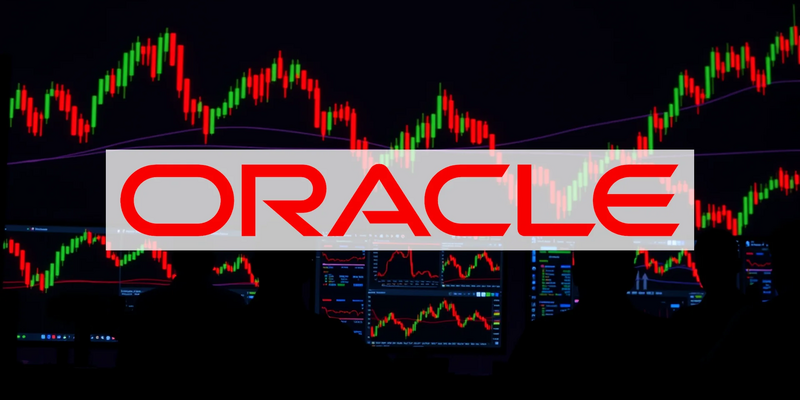Oracle’s Debt Dilemma: Investors Question $300 Billion AI Gamble
14.11.2025 - 12:14:04Oracle Corporation, once celebrated as a frontrunner in the AI infrastructure surge, is now confronting its most severe downturn since the rally began. Share values have plummeted 33 percent since September, falling from $345 to approximately $240. This dramatic shift stems from growing investor apprehension regarding the company's monumental $300 billion commitment to OpenAI. Market participants are now scrutinizing whether the database titan can financially shoulder this historic obligation or if the resulting debt burden will trigger its undoing.
Central to the market's unease is an unprecedented five-year, $300 billion infrastructure agreement between Oracle and OpenAI, ranking among the largest such deals in tech industry history. The initial wave of optimism that greeted this announcement has now receded, replaced by a critical examination of the financial risks involved. Analysts and investors alike are questioning if the projected revenues can possibly justify the colossal capital outlay.
Jackson Ader, an analyst at KeyBanc Capital Markets, highlighted a fundamental weakness: among the major cloud GPU providers, Oracle generates the lowest free cash flow. This revelation has intensified doubts about the company's capacity to manage such enormous capital commitments while simultaneously maintaining profitability.
Mounting Financial Pressures
Oracle's aggressive strategy to expand its AI capabilities relies heavily on debt financing, a approach that is unsettling institutional investors. The company faces substantial funding requirements to deliver on its infrastructure promises, leading to heightened scrutiny of its balance sheet.
The situation was underscored when Barclays analyst Andrew Keches downgraded Oracle's debt rating, stating plainly, "We see no path for Oracle's credit profile to improve." He identified the significant funding demands as the primary concern. Market sentiment reflects this anxiety, with Oracle's 5-year Credit Default Swaps recently hitting two-year highs—a clear indicator of escalating worries about the firm's financial health.
Profitability and Competitive Concerns
Oracle's strategic focus presents another layer of risk. Unlike competitors such as Amazon Web Services (AWS) or Microsoft Azure, which spread infrastructure costs across a diverse customer base, Oracle is heavily concentrated on the AI sector. This specialization could prove precarious if the anticipated demand fails to materialize.
Should investors sell immediately? Or is it worth buying Oracle?
Compounding these strategic worries are reports indicating that Oracle's cloud infrastructure unit operates with gross margins of just 14 percent. This figure lags significantly behind the 30-35 percent margins at AWS and the over 40 percent margins achieved by Microsoft Azure. Such margin pressure raises fundamental questions about the long-term economic viability of Oracle's current path.
External Economic Headwinds
The Federal Reserve's monetary policy adds another complication to Oracle's predicament. Whereas traders had previously priced in a 95.5 percent probability of interest rate cuts by December, that likelihood has now shifted to a fifty-fifty chance. A higher interest rate environment would directly impact the cost of Oracle's debt-financed expansion, squeezing its financial flexibility further.
The reverberations from Oracle's challenges have extended across the technology sector. The Nasdaq Composite declined 2.29 percent in its worst trading session since October. Simultaneous drops in the shares of Nvidia and Broadcom demonstrated the interconnected nature of the AI infrastructure ecosystem.
A Market Shift in Sentiment
Oracle's sharp decline signals a pivotal change in market psychology. Investors are increasingly prioritizing tangible earnings over ambitious growth narratives, particularly for companies undertaking massive capital investments. As one Wall Street analyst summarized the prevailing sentiment, "Everyone is questioning whether OpenAI can even fulfill its end of the $300 billion commitment."
The next critical test arrives in mid-December with the release of quarterly earnings. This report will reveal whether Oracle's management can begin restoring market confidence or if the company's enormous debt-fueled wager will escalate into a full-blown crisis.
Ad
Oracle Stock: Buy or Sell?! New Oracle Analysis from November 14 delivers the answer:
The latest Oracle figures speak for themselves: Urgent action needed for Oracle investors. Is it worth buying or should you sell? Find out what to do now in the current free analysis from November 14.
Oracle: Buy or sell? Read more here...


